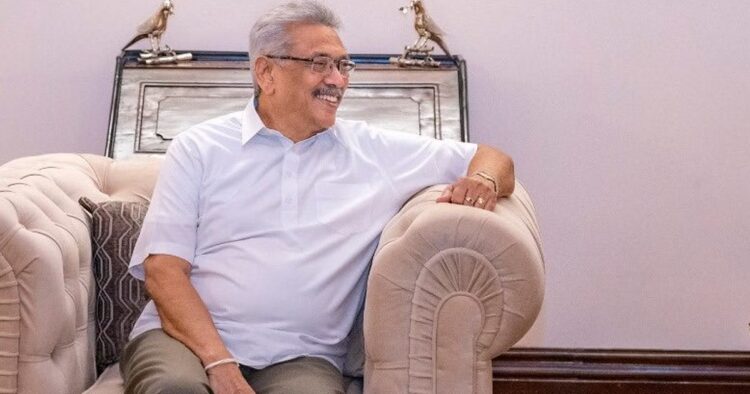In a significant development, Sri Lanka’s Supreme Court has issued a summons to former president Gotabaya Rajapaksa regarding his granting of a presidential pardon to a soldier convicted of a serious crime.
This move follows a landmark ruling by the apex court just five months ago, which overturned another pardon granted by Rajapaksa.
The summons issued on Friday is related to Rajapaksa’s decision in 2020 to pardon soldier Sunil Ratnayake, who was convicted of murdering eight ethnic Tamils, including a child, back in 2000. This incident occurred in Mirusuvil, located in the northern Jaffna district, during the armed conflict with the LTTE.
Gotabaya Rajapaksa, who was ousted from power in mid-2022 due to a popular uprising against his rule, is now required to respond to the court regarding his decision to pardon Ratnayake. The court will hear a fundamental rights petition on this matter, with the next hearing scheduled for September.
In addition, Ratnayake himself has been ordered to appear in court alongside Rajapaksa during the September hearing. This indicates a serious legal scrutiny into the pardon decision and its implications.
ALSO READ: “Bharat Extends Onion Supplies to Sri Lanka and UAE Following Assistance to Maldives”
Earlier this year, on January 15, the Supreme Court overturned another pardon granted by Rajapaksa. This pardon was for Duminda Silva, a close political aide who was sentenced to death for murdering a local political rival from the same party in 2011. The reversal came after the relatives of Silva’s victim challenged the pardon.
Following the court’s decision, Duminda Silva was returned to prison to serve his sentence. These legal actions highlight the checks and balances within the Sri Lankan legal system, particularly regarding the president’s power to grant pardons.
The Sri Lankan Constitution, under Article 34, grants the president the authority to grant pardons, albeit subject to a stipulated process. The recent summons and legal proceedings underscore the importance of adhering to due process and accountability, even for the highest office in the nation.

















Comments